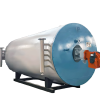Can the right industrial boiler system truly enhance production processes in the pharmaceutical industry? The key lies in recognizing the stringent requirements this sector imposes on boiler performance—including rigorous hygiene, safety, and quality standards. Choosing the appropriate boiler goes beyond mere compliance; it is essential to ensuring the reliability and efficiency of the entire production operation.
In pharmaceutical manufacturing, steam boiler systems play a critical role in supporting vital processes such as sterilization, drying, and heating. YX Boiler possesses extensive experience in supplying tailored industrial boiler solutions to pharmaceutical companies, delivering steam systems that fully align with their specific demands.
Why Choose Specialized Boilers for the Pharmaceutical Industry?
The pharmaceutical industry operates under strict regulations to ensure product safety and efficacy. Specialized boilers are indispensable in this context, as they generate contaminant-free steam to safeguard the entire production process.
Key advantages of using specialized steam boilers in pharmaceutical applications include:
High-purity steam output that complies with rigorous hygiene standards
Precise temperature control for optimal production conditions
High energy efficiency, reducing operational costs and environmental impact
Customized maintenance and servicing plans to ensure long-term reliability and performance
In summary, specialized boilers are vital to the pharmaceutical industry, offering unmatched capabilities such as stringent hygiene compliance, accurate temperature management, high steam purity, and rapid response times. These features are essential for maintaining product quality, safety, and regulatory adherence. Generic boiler systems cannot fulfill these critical requirements.
YX Boiler provides end-to-end solutions, including professional consultation, custom design, dedicated R&D, made-to-order manufacturing, genuine parts supply, seamless installation, and lifelong after-sales support. Our tailored approach helps clients achieve enhanced operational efficiency and full compliance with industry standards.
Key Characteristics of Boilers for the Pharmaceutical Industry
Pharmaceutical manufacturing requires boilers that deliver precise temperature control, operational stability, and full compliance with environmental regulations. Selecting a suitable steam boiler is crucial for ensuring both product quality and safety in pharmaceutical production.
2.1 Temperature Control and Stability Requirements
Temperature accuracy is essential within the pharmaceutical industry. Fluctuations can severely compromise drug quality, making it imperative for industrial steam boilers to maintain consistent temperatures. Such stability is particularly critical during sterilization, formulation, and drying processes.
Modern steam boiler systems enable precise steam generation, which is indispensable for pharmaceutical applications. YX Boiler offers a range of industrial boilers—including oil-fired, gas-fired, coal-fired, biomass, and electric steam boilers—all designed to deliver reliable and stable temperature performance.
2.2 Environmental and Emissions Standards
Boilers serving the pharmaceutical sector must adhere to stringent environmental and emissions requirements, which include limiting greenhouse gases and pollutants. YX Boiler integrates sustainable technologies to minimize ecological footprints, such as:
Low NOx combustion systems to reduce harmful emissions
High-efficiency designs that lower fuel consumption
Compliance with regional and national environmental guidelines
In summary, boilers deployed in pharmaceutical settings must exhibit exceptional reliability, precise controllability, and environmental responsibility. These features collectively ensure not only the quality and safety of pharmaceutical products but also support sustainable manufacturing practices and extended operational service life.

 December 21, 2019 - BY Admin
December 21, 2019 - BY Admin